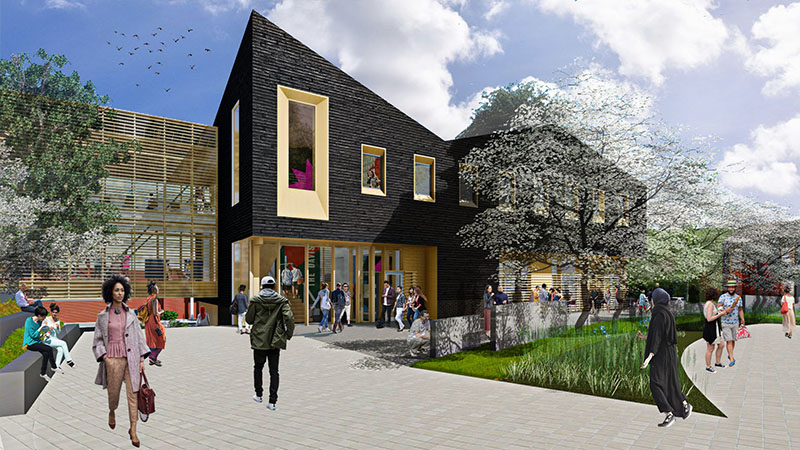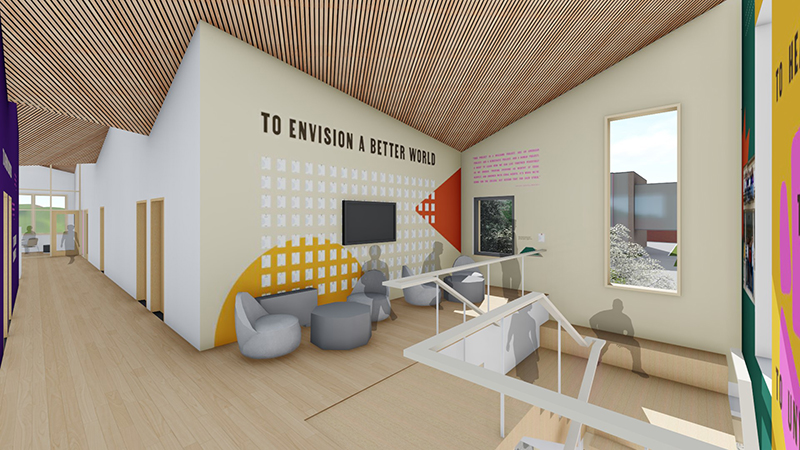
Williamstown, MA For more than three decades, the 18,650 s/f Davis Center at Williams College has been the physical, intellectual, and programmatic heart of campus-wide efforts to build an inclusive community on Williams’ campus. Leers Weinzapfel Associates, in collaboration with J. Garland Enterprises, is expanding the center to 26,350 s/f with a major new addition as well comprehensive renovations of the adjacent Rice and Jenness Houses. The resulting facility will feature universal access and increased space to accommodate Minority Coalition (MinCo) student gatherings, meetings, dialogue, classes, socializing, studying, and programming.
The new and renovated center will welcome everyone, with a particular focus on those from historically underrepresented identities. With modernized space built for current and future needs, the building will be a dynamic and effective hub for the education, activism, community building, academic exploration, well-being, and celebration that happens within. It will provide the space for student affinity groups to collaborate and convene.
The new addition reflects the domestic scale of the neighboring Rice and Jenness Houses with an open, glazed ground floor that acts as an invitation to broad campus engagement.
A dynamic roofscape references the peaks and valleys of the mountain ranges that surround the college. The Center will house a new large gathering and event space to host the wide range of Davis Center programs, student group meeting spaces at a variety of sizes, staff office space to accommodate program growth, and improved kitchens for cultural and student group use. Beyond the program itself, the college sought spaces that were connected instead of siloed in separate buildings, that emphasized both physical and cultural access, and that reflected the mission of the Center.
Pursuing Living Building Challenge Petal Certification, the Davis Center creates a bold and vivid expression of Williams’ commitment to cultivating a community that is socially just, culturally rich, and ecologically restorative. Completion is expected in fall 2023.
